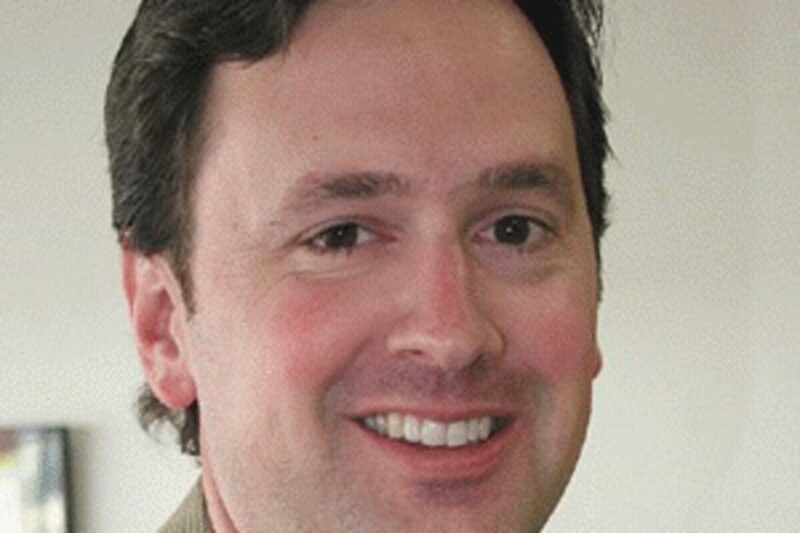Sean C. Morgan
Of The New Era
People need to see their governor is for real, state Sen. Jason Atkinson, a gubernatorial candidate, said.
“Our whole campaign is based on grassroots, hard work and going everywhere,” Atkinson said.
Sweet Home is among a number of small towns where he is stopping while seeking the Republican nomination for governor. He stopped at The New Era on Friday.
His campaign takes him to small towns all over the state, he said. “Oregon is a big small town.”
Atkinson, 35, represents Senate District Two, which includes Jackson and Josephine counties. His hometown is Jacksonville, outside of Central Point. He served in the House for two years and then six years in the Senate.
About a year and a half ago, “a friend said, if you want to make the changes you want, you have to run for governor,” Atkinson said. “Right now, Oregonians are skeptical about who’s leading the state, and they want to believe again, like me.”
As a politician, he said he has seen special interests bog down the legislative and budget process, Atkinsons aid. The current state budget took 208 days to pass, far too long and leaving school districts uncertain about funding.
He tried to pass a bill to require that the budget be passed in 81 days or elected officials are docked pay, Atkinson said. He co-sponsored a “Jessica’s Law,” which would lock up sexual predators. It failed for partisan reasons, and Oregon is one of the few states that have not passed such a law.
“When government doesn’t respect their own people, people don’t respect their government,” Atkinson said. People reject tax increases, but government leaders continually try to raise taxes.
“Oregon government does not respect people any more,” Atkinson said. “As governor, I have the ability to change that tone.”
“I don’t speak ill about other Republicans, (but) I would say what’s different about me is my approach is positive,” Atkinson said. “My opponents always run a slash-and-burn fear campaign.”
His opponents point out his age as an problem, but Atkinson points to what he has accomplished at his age and sees it as a plus.
He chose to take a grassroots approach, something that hasn’t been done in many years, Atkinson said.
“I was raised in a family that puts a very high ethic on service,” Atkinson said. He put himself through college, earned his master’s degree, started his own business consulting company and published his first book, “What We All Wish Politicians Understood.” His wife, Stephanie Atkinson, is a graduate of Oregon Institute of Technology.
Atkinson supports private property rights and the Second Amendment, he said, and he has always fought increases in property, incoming, business and consumer taxes and opposed a sales tax.
“I am an anti-tax guy,” Atkinson said.
“I put a huge emphasis on consistency,” Atkinson said. He doesn’t want to be a different as a candidate than he would be as governor, he said, noting that “some 80 percent of politicians will say anything to get elected.”
He outlined three main tasks he wants to complete as governor.
“It is a crime that we pass K through 12 … half of the state budget in 208 days,” Atkinson said. School Districts must have their budgets ready by July 1 each year, but the last two Legislatures did not finalize the education budget till after that date. As governor, he would require that the budget be done in 100 days. If not, he will use the veto to stop the “pork” and encourage the Legislature to finish the budget.
The Legislature stalls on setting the education budget for months on end, ostensibly waiting for the May revenue forecast, Atkinson said. It doesn’t need to wait for that forecast. It’s never that much different from earlier projections each year, and no one in the state builds budgets based on those numbers.
He wants to protect children from sexual predators with tougher laws, locking them behind bars, Atkinson said. It’s issues like this where women have lost confidence in their state government.
One of the crimps in Oregon’s economic health is the capital gains tax, Atkinson said. He wants to completely eliminate the capital gains tax.
Most of the people Atkinson graduated college with have left the state, Atkinson said. Oregon offered no opportunity. That’s because Oregon is known as an anti-business state.
Dealing with these three things, “I’ve just respected people, and Oregonians can say, wait a minute, it’s not politics as usual down there.”
The state’s meth problem, one of the worst, can be partially linked to the Oregon jobs situation, one of the top three in the nation over the last five years, Atkinson said. When unemployment is up, drug use is up.
“The people who manufacture it, sell it, they’re not drug addicts, they’re murderers,” Atkinson said. He believes they should be treated like criminals with stiff sentences, and law enforcement needs support. He supports community- and faith-based efforts to combat drug use.
At the same time, the state needs policies that will encourage job creation, like the elimination of the capital gains tax, he said. Oregon’s approach in the past was to stop cutting trees and start growing meth.
A person graduating high school will accumulate upward of $30,000 in debt by college graduation, he said. During that time, the person likely gets married, and after graduation lands a job paying $28,000 per year. With the college debt, they cannot buy a home or even afford to live in Oregon.
To help out, he favors programs like Jobs Plus and the welfare to work programs, “fantastic ideas” that have swept the country but not Oregon, Atkinson said. He is happy to help people with a “hand up” to find a job.
Fundamental change is needed, he said. “It’s got to be tangible and break the monopolies of special interests.”
The real challenge starts when he goes to work changing the attitude of state government, Atkinson said.





